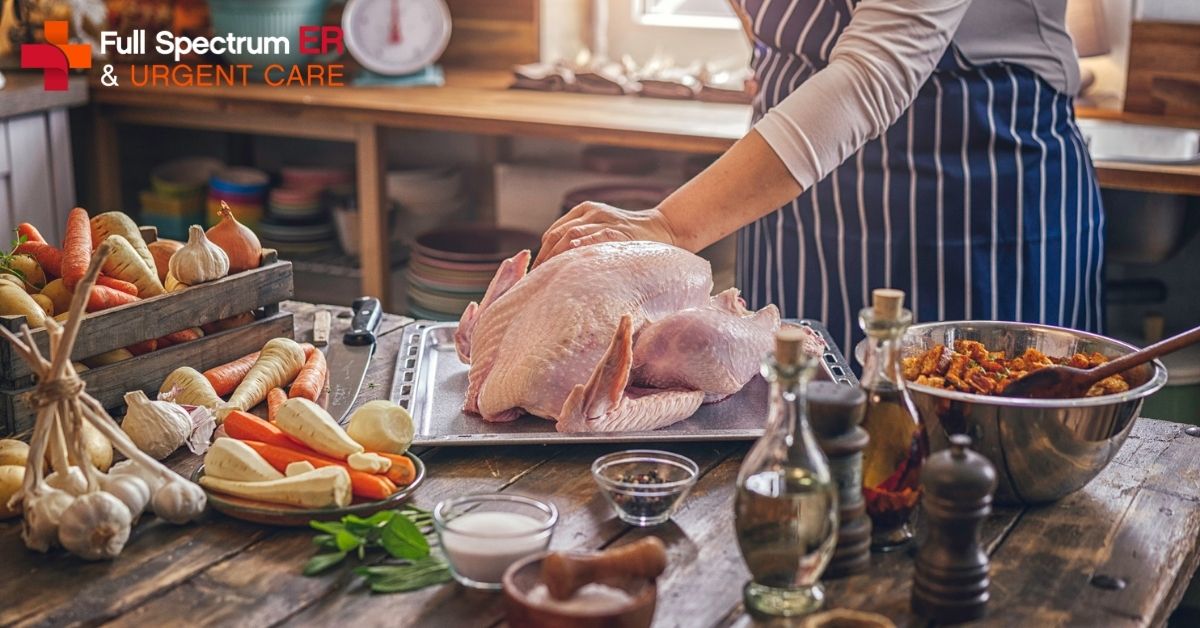
Keeping This a Happy Holiday Season
The holidays are filled with home-cooked meals, family visits, and dinners out with friends. And with this season quickly approaching, people become at an increased risk for food poisoning.
According to the Centers for Disease Control and Prevention (CDC), an estimated 1 in 6 Americans gets a foodborne illness. That equals approximately 48 million people! Anyone is susceptible to getting food poisoning, but some get more severe symptoms than others.
Here are some of the symptoms to be aware of, as well as steps you can take to prevent food poisoning:
Symptoms of Food Poisoning
Food poisoning symptoms can range from mild to severe depending on the germ that was consumed. However, the most common symptoms are:
- Upset stomach.
- Stomach cramps.
- Nausea.
- Diarrhea.
- Fever.
Symptoms can take hours or even days to develop after swallowing unsafe, contaminated food or drink. Frequent vomiting or diarrhea can lead to extreme dehydration. If your symptoms worsen and become severe, seek medical attention immediately.
Treating Food Poisoning
With most mild cases of food poisoning, you can be treated at home and will begin to feel good as new within three to five days. The key component in treating food poisoning is staying hydrated!
Sports drinks that are high in electrolytes, coconut water, and some fruit juices can help with both hydration and fatigue. Decaffeinated teas with ginger, peppermint, or chamomile may soothe an upset stomach. Over-the-counter medications can also help with feelings of nausea and better control diarrhea. And always, get plenty of rest.
Once your symptoms have significantly slowed down or passed, you may want to add solid foods back into your diet gradually. Starting with bland, simple-to-digest, and low-fat foods are best. Some examples of good food to eat when you have food poisoning include:
- Saltine crackers.
- Bananas.
- Rice.
- Oatmeal.
- Toast.
- Chicken broth.
Preventing Food Poisoning
Food poisoning can be prevented by following the proper steps in the kitchen to handle food safely and avoid cross-contamination. Follow these steps to keep your family and friends happy and healthy this fall:
Clean
Wash everything! Washing your hands, surfaces, utensils, and cutting boards before, during, and after preparing food is a crucial step in food safety. Wash your hands with plain soap and water — but make sure you scrub between your fingers, under your nails, and the backs of your hands before handling food. Also, be sure to wash them after handling raw meat, using the restroom, touching garbage, an animal, or your hair.
Separate
Avoid cross-contamination! Use separate cutting boards and plates for produce, meat, poultry, seafood, and eggs. Also, use different plates and utensils for cooked foods and raw foods. Make sure all items that touch raw meat, seafood, poultry, or eggs, get thoroughly washed in hot, soapy water. It is also recommended to separate meats and raw foods from other food in your refrigerator and shopping cart.
Cook
Cook to the right temperature! Use a food thermometer to ensure your food is cooked safely to the temperature that will kill all germs that can make you sick. If you are unsure of what temperature that should be, use this chart for food safety.
Chill
Refrigerate and freeze your food! Proper refrigeration of perishable food is pertinent to keeping your food safe and uncontaminated. Refrigerate any perishable food within two hours, keeping your refrigerator at 40 degrees or below. If you are unsure of when to dispose of certain foods or leftovers, read these storage tips.
Treating Abdominal Pain in San Antonio
If your food poisoning symptoms worsen, don’t let them go untreated. Our team is ready to help and provide you with fast solutions to feeling better. At Full Spectrum Emergency Room and Urgent Care, there are little to no wait times. Send us a message online or call (210) 429-8313 for free consultations in-person and over the phone.

